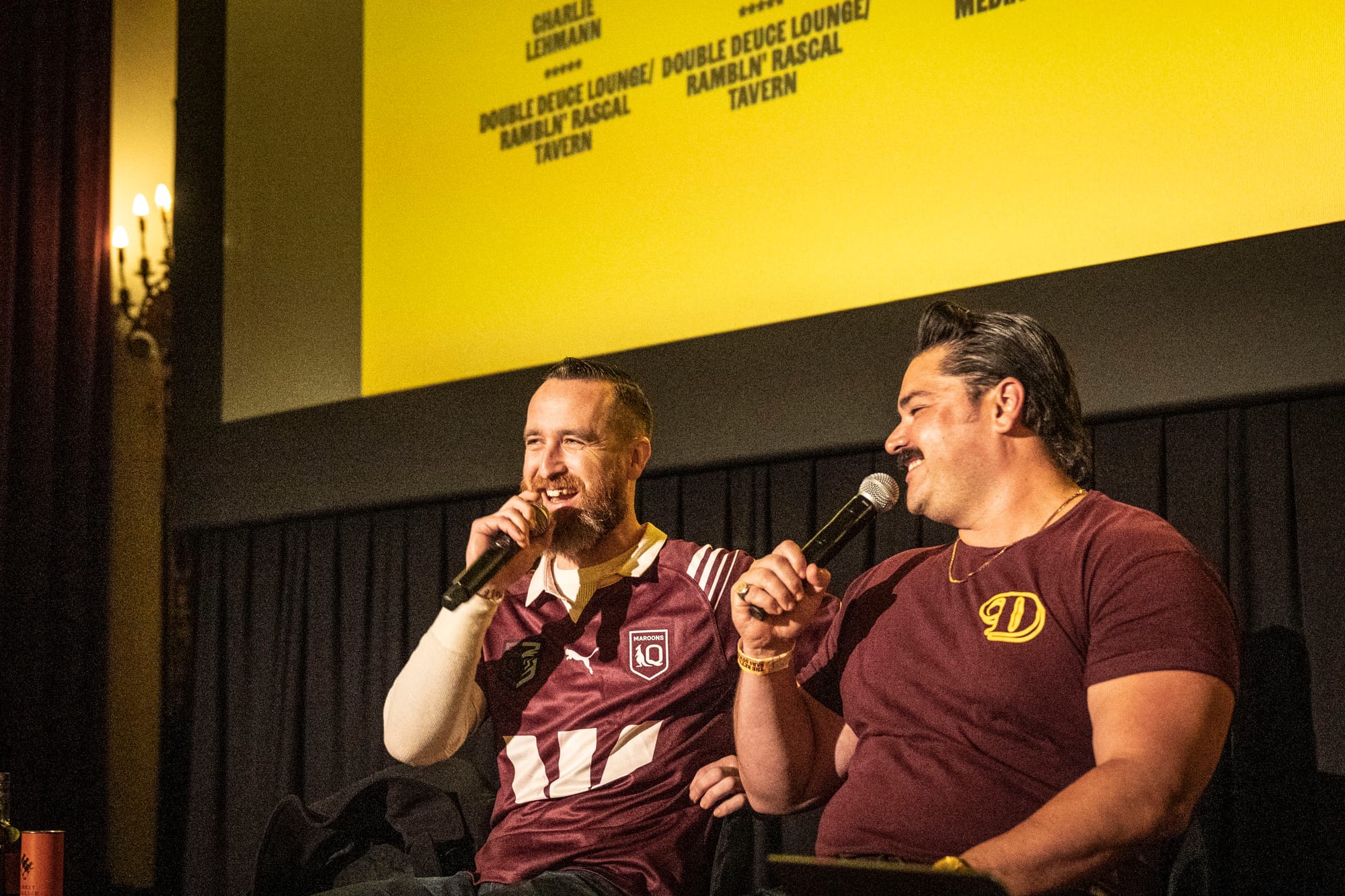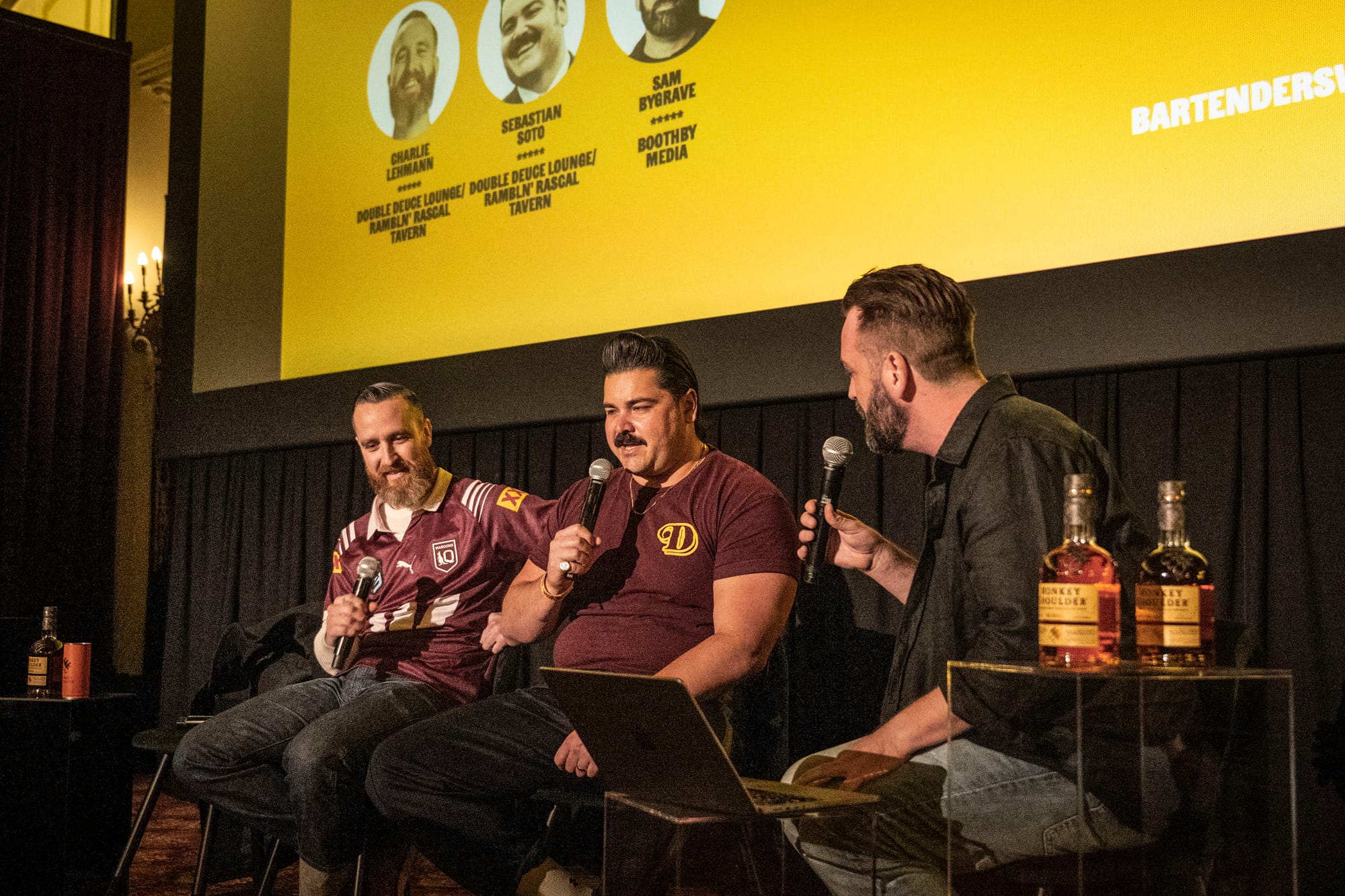How to own and run bars you want to spend time in
Their business approach might not result in a big property portfolio anytime soon, but their bars are places people love.

Poor hospitality work environments are, frustratingly, in the news again, due to Sydney Morning Herald and 60 Minutes reports on hospitality group, Merivale, and allegations around the way in which overseas workers have been treated at the company. I’d encourage you to go and read those reports in full; it’s important to note, too, that Merivale has denied the allegations — you can read a detailed response from their lawyers to 60 Minutes here.
Here I want to make a broader point, one that I don’t think is controversial, but it keeps coming up, so here we go.
We really ought to be in a place by now in the hospitality industry where the people who make the food and the drinks, and who provide the service in our venues are paid correctly. Simple, right?
And, if people are asked to work longer hours, they ought to be paid for their time. I came up in hospitality in an era in which you did extra work for free; if you were a manager in bars or restaurants, it was generally understood that your salary and contract of 38 or 40 hours actually meant 60 hours. That was just the way it was — but that doesn’t mean it should have been, nor should it continue to be that way. From what I’ve heard, in many places, it’s not that way anymore. That’s a good thing. I don’t know many owners of businesses that provide their service for free.
And it sometimes feels as though the industry bodies which represent the owners of venues — the Restaurant & Catering association comes to mind, as does the AHA — are often quick to argue against a minimum wage rise, or an increase in the award; you hear a lot less about the rent they’re asked to pay by landlords, just by the by.
I get that wages are expensive part of the P&L in any hospo business. I get that they are a variable cost that you need to keep an eye on. I understand that the skill level of staff is often not up to what owners need, and they have to spend money on training people. I get that the public never wants to pay more for food and drink and that the cost of goods is always going up.
But here’s the thing: if your business can’t afford to pay staff correctly, then you don’t have the right business model; paying people correctly is the buy-in for playing the game, and yes, the game has rules. If you can’t play the game by the rules you don’t deserve to be in business. Maybe hospitality isn’t — or shouldn’t — be the type of business you build an empire on. If you break it down, what you have is a business based on humans interacting with other humans, and if you want to live in a world that isn’t a dystopia, then that’s going to cost money. You should be able to own a business and make a good living and pay your people a good wage, too.
And you can feel it when a hospo business treats their people well — you feel it in the service, taste it in the food and drink. And treating your staff well doesn’t mean they won’t work hard, but rather the opposite: hospo people will slog their guts out for a venue they believe in.
So there has to be a better way.
Which brings me to this week’s episode of Drinks At Work. It’s a live recording of an interview that took place during the Better Bars Summit at Bartenders’ Weekender in Brisbane last month, with two people who I think — and this was the subject of the chat — approach ownership and the operation of their bars with an old fashioned publican mindest. It’s an approach which means they’re present in their businesses, they give a damn about their people, and they seek to create places of culture and community. I am talking about Charlie Lehmann and Sebastian Cosmo Soto of Ramblin’ Rascal Tavern and Double Deuce Lounge in Sydney. I’m sure they’d be the first to admit that they are not perfect owners, but I do know that they give a damn about doing things the right way, even if that leaves some money on the table. While they might not be building a property portfolio or retiring any time soon, this approach I think has helped their businesses to not just have some longevity, but to have some soul about them too, as Charlie notes in this chat.
(There’s also a reasonably lurid story about why Cosmo doesn’t work Saturday nights anymore, you know, for fun.)
You can listen to the podcast in full here or in your podcast player of choice (be sure to subscribe!), and below, I’ve pulled out a few quotes for some takeaways from the chat.

“I took 20 grand out of my own super to pay our staff.”
During Covid, before government support had been worked out — but with their businesses closed down and everyone shut up in their homes — to support their staff Charlie took advantage of the ability to dip into his own personal superannuation to withdraw $20,000 and pay their staff. You only do this if you really give a damn about your people.
“We’re bartenders. We opened our bar, this is our dream — I want to be there.”
You’ll meet very few bar owners who want to have one bar and that’s it. The idea tends to be to get one bar up and running, and open one or two more places, so that you can start making some actual money. Charlie, Cosmo and co-owner Dardan Shervashidze opened Ramblin’ Rascal Tavern 11 years ago; it wasn’t until Rascal was five years old that they went and opened Double Deuce Lounge, their cocktail-focused bar. And you’ll usually find an owner in each bar during service, working the floor or the bar — something that keeps them close to what’s happening day in and day out in their businesses.
“These places and these independent operators have soul, because they put their life into it, like we have.”
I don’t know about you, but I’m not really one for big booze barns. They might be handy for watching a live sports event, or for when you need to meet a large group of people, but that’s about it. They’re convening spaces; it’s less about the hospitality, and that’s often by necessity: they’re about volume, not quality.
As a result, they’re not the kind of places that do much for culture, I don’t think. The texture, the fabric of the city is made up of the smaller, independent-run places with distinct identities and offerings, and with the kind of service that makes you want to go back and be a regular. Anyone can serve booze. It’s not hard. What is hard is to make people feel special — and that’s what gets people back in the doors.
Perth! It’s your turn to get behind Speed Rack Australia. This Sunday 6 July, get down to Edward & Ida's from 7pm to cheer on the competitors in the WA round of Speed Rack, the high-speed, high-energy female bartending competition that raises money for breast cancer research, all while having one hell of a good time.
I’ve been to both the Sydney and Melbourne events so far, and loved it — you can get your $15 ticket (the money goes to charity!) and secure your spot here. And Brisbane — you’re up next, on Sunday 13 July.

